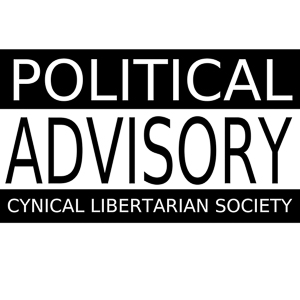Anarchy Moment 0391 – “Believing ‘fake news’ induces stress and could be bad for your heart, new research suggests.” Believe Or We Will Scare You Into Believing.
Podcast: Play in new window | Download (Duration: 1:08:02 — 66.5MB)
Subscribe to the podcast. RSS
The Great One takes a look at some settled science.
People who do not question the source of information experience physical and mental stress
Believing ‘fake news’ induces stress and could be bad for your heart, new research suggests.
The first two sentences of this article contradict each other. From there it only gets worse.
Anyone remember this?
You Must Not ‘Do Your Own Research’ When It Comes To Science
“Research both sides and make up your own mind.” It’s simple, straightforward, common sense advice. And when it comes to issues like vaccinations, climate change, and the novel coronavirus SARS-CoV-2, it can be dangerous, destructive, and even deadly. The techniques that most of us use to navigate most of our decisions in life — gathering information, evaluating it based on what we know, and choosing a course of action — can lead to spectacular failures when it comes to a scientific matter.
It’s more than “new research” my friends and enemies. It’s, and yes I quote:
“the first research to use a variety of sophisticated techniques across information science, psychology and user experience design”
I recently completed an E-Learning Portal funded project for Jeff Gosling Hand-Controls working in collaboration with eGenius (now Digital Candle) and DualFocus. This was part funded by an Innovation Voucher.
I was previously at Northumbria University for 3 years where I secured British Academy/ Leverhulme Trust funding (with Ali Pickard). I worked on a number of research projects including the EU AMORES project (Discovering a love for literature through digital collaboration and creativity). I was Principal Supervisor for research projects on information literacy in Vietnam and qualitative big data.
Before Northumbria University I had a dual role at Staffordshire University of Senior Researcher in the Faculty of Arts and Creative Technologies and Academic Skills Tutor Librarian (Information Services). As Senior Researcher I secured over €300,000 in EU funding and £20,000 AHRC funding.
“funded by an Innovation Voucher”
“I secured British Academy/ Leverhulme Trust funding”
“I secured over €300,000 in EU funding and £20,000 AHRC funding”
Notice that all of his endeavours require tax payer funding. He has a feminist career.
Like a woman Geoff has a “job” that produces exactly nothing.
His publications:
https://scholar.google.co.uk/citations?hl=en&user=UwsIXpUAAAAJ&view_op=list_works&sortby=pubdate
Using deception to measure the psychophysiology of information literacy
G Walton, J Barker, M Pointon, M Turner, A Wilkinson – 2018Measuring the psychophysiology of information literacy
G Walton, A Wilkinson, M Turner, M Pointon, J Barker – The Sixth European Conference on Information …, 2018Information discernment, mis-information and pro-active scepticism
G Walton, AJ Pickard, L Dodd – Journal of Librarianship and Information Science, 2018
Abstract
A participatory action research approach was employed to investigate school students’ information discernment capabilities. Placing school student participants at the centre of the research process enabled them to define the problem in their own words and begin to find solutions to the issue of how to choose good quality information. Findings confirmed the results of many studies – that school students adopt a cognitive default position of trust and are relatively unquestioning when using information sources for their work (in this case the Extended Project Qualification or EPQ).
Results also showed that with an appropriate embedded learning and teaching intervention, which includes aspects of information and digital literacy, school students adopt a cognitive questioning state, which leads to pro-active scepticism, enhancing their information discernment and in turn enables them to make better information choices. This has implications not only for school teachers and librarians but for educational policy makers also.
https://journals.sagepub.com/doi/abs/10.1177/0961000618769980
Embedded learning and teaching intervention.
So that’s what they are calling it now.
Using deception to measure the psychophysiology of information literacy
Walton, Geoff, Barker, Jamie, Pointon, Matthew, Turner, Martin and Wilkinson, Andy (2018) Using deception to measure the psychophysiology of information literacy. In: LILAC 2018 – 14th Librarian’s Information Literacy Annual Conference, 4th – 6th April 2018, Liverpool, UK.
Full text not available from this repository.
Full text not available. Isn’t that convenient.
Conclusions
In summary high-level information discerners report a tendency to be: more curious about information; cognisant of authority, ie inspect the credentials of the author; interrogate a piece of information methodically, attend to all aspects presented to them; tend to use multiple sources to verify information, more likely to be sceptical about information on search engines such as Google; do not regard the first results page as the most trustworthy information; regard knowledge as not fixed but changing and recognise that knowledge can be contradictory at times. Additionally, higher discerning individuals appear to respond to stigmatised dis-information in an adaptive (challenged) way and with a positive emotional reaction. This may mean that when a person is looking for information in a stressful situation (e.g., health information) those who have high levels of information discernment may be more likely to make well-calibrated judgements about the information they find which, in turn may help them to make more appropriate decisions about the information they use. Conversely, those with low information discernment may be more likely to make sub-optimal decisions about the quality of the information they encounter because they lack the tools to interrogate its validity are likely to be less emotionally positive and feel their stress in a maladaptive (threatened) way.
The potential link between high levels of information discernment, emotion and challenge stress response when encountering stigmatised misinformation indicates that there are clear benefits in having a population of high-level information discerning individuals. This theoretical link between the physiological and psychological is worthy of more research with a larger cohort to determine whether this can be generalised more widely. This upholds the significance that stress/coping (an element of Wilson’s information behaviour model, 1991) and affective factors (Kuhlthau, 1991; Hepworth, 2004; Walton and Hepworth, 2011; 2013) play in the information behaviour process. This indicates a critical need to employ effective information literacy (Secker and Coonan, 2013) or Metaliteracy teaching and learning methods (Mackey and Jacobson, 2019), to raise information discernment levels from low to high to combat the effects of misinformation. The results discussed here indicate that those with low levels of information literacy (information discernment in particular) may be far more susceptible to misinformation, not just cognitively but also emotionally and physiologically. This has profound implications for society by providing a further indication of the dangerous effects of misinformation such as that propagated in conspiracy theories, extremist material and the so called Infodemic.
Did you read that?
Did it make any sense?
Jump back to the beginning. Someone writing on the Manchester Metropolitan University website read that and concluded the following:
Yes, I quote.
Believing ‘fake news’ induces stress and could be bad for your heart, new research suggests.
Abstract
A participatory action research approach was employed to investigate school students’ information discernment capabilities. Placing school student participants at the centre of the research process enabled them to define the problem in their own words and begin to find solutions to the issue of how to choose good quality information. Findings confirmed the results of many studies – that school students adopt a cognitive default position of trust and are relatively unquestioning when using information sources for their work (in this case the Extended Project Qualification or EPQ). Results also showed that with an appropriate embedded learning and teaching intervention, which includes aspects of information and digital literacy, school students adopt a cognitive questioning state, which leads to pro-active scepticism, enhancing their information discernment and in turn enables them to make better information choices. This has implications not only for school teachers and librarians but for educational policy makers also.
https://journals.sagepub.com/doi/abs/10.1177/0961000618769980
Can’t get access to it. Behind a credential wall.
The internet is going to make information available to everyone. If you don’t critically evaluate what you read on the internet you will have a heart attack. Yet you can’t critically evaluate information on the internet because the information is behind pay walls or credential walls.
Welcome to Dystopia. Enjoy your stay or we’ll make you enjoy it.
Source material for this episode:
https://CynLibSoc.com/clsology/sources/AM-0391.zip
Send some commies to Canada. They said they would go if the Trumpenfuhrer was elected President but they are too dumb to figure out Canada is to the north and too poor to get there ’cause they have liberal arts degrees. Commies To Canada.
Stalk The Great One. Send The Great One hate messages and death threats. Tell The Great One how right he is and feed his ego. Send The Great One nude photos of you if you are a cute girl.
All The Podcasts Belong To You: You can get every podcast ever recorded by The Great One, Himself. No bullshit. Every podcast.
RSS Feed: https://www.cynlibsoc.com/feed/
Cyber Begging: Contribute here. Give me your federal reserve fiat currency cuck bucks. For $111 federal reserve fiat currency cuck bucks I will do a podcast on any topic you choose.
Give The Great One your bitcoinz. All your bitcoinz belong to us!
Bitcoin Address: bc1qrjanhe8434sk44xwvnqsgt0y52ngd8yk9hv2y7
Odysse.com: https://odysee.com/@CynLibSoc:7
MeWe: https://mewe.com/i/thegreatonehimself
InstaThot: https://www.instagram.com/cynlibsoc/
Twitterverse [Inactive account: I’m locked out for hate speech.]: https://twitter.com/cynlibsoc
Twitterverse account where new podcasts are posted: https://twitter.com/CLSPodcastFeed
CensorshipTube: https://www.youtube.com/@CynLibSoc/videos
BoomerBook: https://www.facebook.com/CynLibSoc
Gab: https://gab.com/CynLibSoc
CLS Merch, get it before it’s removed for violating the TOS: https://www.cafepress.com/cynlibsoc








I emailed you the credential-blocked paper.
I got it. Thanks. I’ve been out of state for work. Will get on this soon as I’m home. Much appreciated.